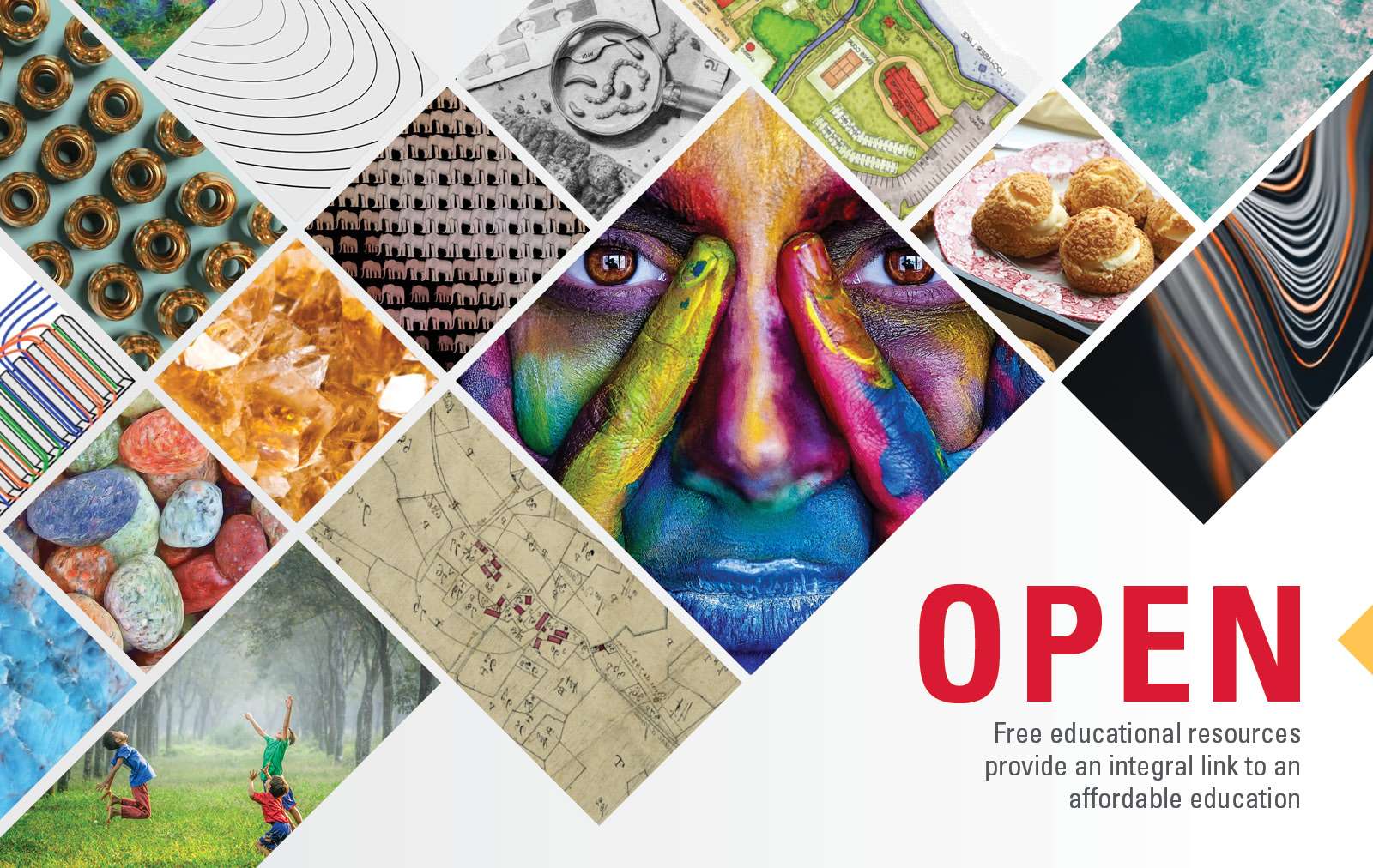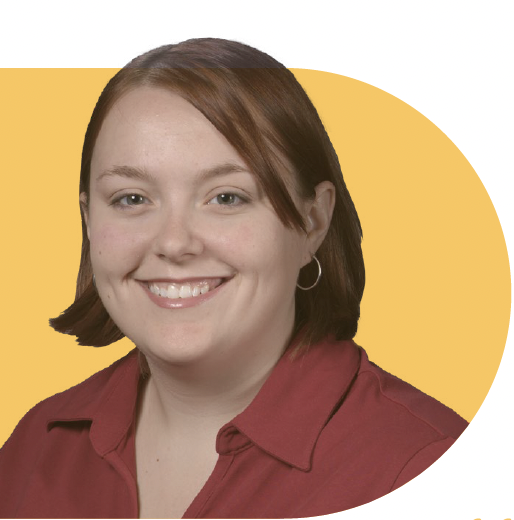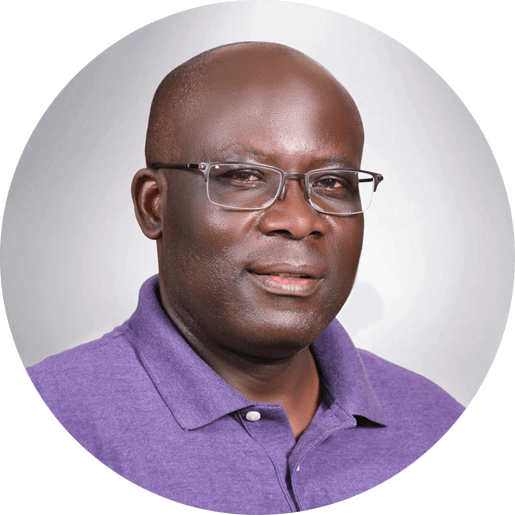OPEN: Free educational resources provide an integral link to an affordable education
Author: M. Monica Gillen

Author: M. Monica Gillen

Picture a classroom where course materials and books aren’t locked in a cabinet, behind paywalls and access code fees open to only those with means.
Students aren’t forced to choose between paying living expenses or purchasing study guides. And instructors are free to customize resources to meet individual course and learner need. When the default is set to open, information flows and learning potential is boundless. Open means unlocked, and it holds the promise of accessibility, enhanced innovation, and worldwide availability.
The landscape in higher education is being reshaped by Open Educational Resources (OER), and the call is clear to ensure course materials are unrestricted as more than a matter of convenience.
OER are freely accessible and adaptable educational materials including textbooks, lecture notes, videos, interactive experiments, and more. The use of OER is included in Iowa State University’s strategic plan as one tactic for increasing accessibility, minimizing student loan debt, and reducing the number of students who graduate with debt. University strategic plan funds have helped fuel the effort in pursuit of Iowa State’s goal to become the most student-centric leading research university.
The use of OER has saved Iowa State University students approximately $2.5 million since 2018, according to Abbey Elder, Open Access and scholarly communication librarian, who assists faculty and instructors in many ways on their path to OER implementation.
Elder empathizes with students who must balance paying for daily expenses while making difficult, if not impossible, choices about which educational resources are necessary for their academic success. She struggled with similar choices during college.
“I don’t want any of our students to have to experience that feeling of being less than their peers because they can’t afford to participate in their own education,” Elder said.
Elder is Iowa State’s OER expert and the Statewide Open Education Coordinator for the Iowa Open Education Action Team on behalf of the Board of Regents. The statewide team, created in 2018, includes Iowa’s public universities, community colleges, private institutions, and the Iowa Department of Education, among others. They support the affordability of higher education by advancing the use of OER for Iowa students.
Elder embraces the chance to help individuals or teams of instructors on the journey to adopt OER. She offers consultations, examines syllabi, and searches repositories to discover and evaluate what open materials exist and how they align with course topics. Elder also hosts workshops, attends department meetings to share about the services she provides, and meets with all potential Miller Open Education Mini-Grant applicants.
“I’m able to help our instructors understand OER basics and make sure they can access support to make their work a success,” Elder said. “After all, we want the best for our students, and you can only make the best experience for your students when you’re able to utilize all the tools at your disposal.”
More than 40 Iowa State instructors currently use OER in their courses and the network expands every day. Elder encourages instructors to incorporate OER content based on the same considerations they would any other educational material. In other words, appraise for content, quality, and currency.
Elder’s comprehensive approach to research and implementation of OER has garnered support at Iowa State. And she is always growing her knowledge of the OER ecosystem, so she can help instructors understand the options for them to make good decisions about what they adopt.

Abbey Elder, Open Access and Scholarly Communication Librarian
Chosen and reserved by instructors for short-term use, Course Reserves are managed by University Library staff who coordinate access, availability, licensing, and copyright. They differ from OER which are usually shared under open licenses. Items like books, journal articles, book chapters, and other readings, as well as multimedia resources like DVDs, CDs, and recorded lectures can be assigned by the instructor and placed on reserve for students to use at no cost to them. Like OER, these services facilitate student success, especially for those facing financial burdens.
Jill Vasquez, library assistant in access services, has worked in Course Reserves since coming to the University Library in 2003.
“Availability when and where students and faculty need us increases convenience and ensures services are versatile and fit the courses well,” Vasquez said.
Instructors help ensure high-demand materials are available to students. According to Vasquez, the types of services offered and materials reserved has changed over time shifting from mostly print books to digital items. Department volume has grown, as well. For fiscal year 2022-23, Vasquez’s team facilitated materials for 429 courses and 9,329 students.
“Keeping course materials affordable for students is a big concern across campus right now, and it’s always been a priority for the University Library,” Vasquez said. “Course Reserves continues to be a valuable partner in keeping those costs low, as materials on reserve are always free for students.”

Jill Vasquez, Access Services Library Assistant
The University Library has a subject specialist for every Iowa State discipline, and they provide vital support for instructors like curating materials and guidance to students on how to discover them.
Charles Yier supports programs offered in journalism and communications and the apparel, events, and hospitality management department. Yier has been a subject librarian at Iowa State for six years and has witnessed significant growth around Open Access citing the sheer volume of materials produced by publishers often with institutional support, as is the case with Iowa State. Universities all over the world are seeing the importance of open efforts in publishing.
“Given the exponential growth of information continuing to inundate the landscape, it is crucial for librarians to take a leading role in curating and providing access to only the highest quality, thoroughly vetted resources through their discovery channels,” Yier said. “This responsibility is particularly vital for Open Access (OA) materials. I strongly believe in the value of OA, a belief bolstered by my own experiences.”
While Elder specializes in Open Access and scholarly communication, her efforts are aided by subject librarians like Yier who disseminate information about open resources to assigned departments. He ensures that his contacts are informed when the application period is open for Miller Open Education Mini-Grants, and a few of his faculty have utilized funds from this program to develop OER.
Yier has taken it upon himself to highlight those resources on an Open Access page for each of his subject guides, for example in the Apparel, Merchandising, and Design program. Additionally, when Yier discovers OER that may be of interest to or align well with a course, he is sure to inform those instructors.
A culture is building at Iowa State where open can be automatic. As the availability and variety of OER increases, librarians and staff will continue to raise awareness and understanding to help these programs grow and unlock access to quality and affordable educational materials.

Charles Yier, Social Sciences and Humanities Librarian
Walter Suza, George Washington Carver Endowed Chair and adjunct associate professor, is an early adopter of open educational resources. When he began working on Plant Breeding E-Learning in Africa (PBEA) in 2013 the resources were developed as online modules, bite-sized lessons that could be used to train African students in the management of crop breeding programs.
PBEA is a collaborative project with the Department of Agronomy at Iowa State and faculty at Makerere University in Uganda, University of KwaZulu-Natal in South Africa, and Kwame Nkrumah University of Science and Technology in Ghana. Over time, site visits and workshops revealed a need for testing, review, and revision of the modules to ensure effective use, according to Suza. To facilitate content management, a partnership was formed with the ISU Digital Press and the modules were republished as a set of open textbooks.
Since publication in 2023, PBEA textbooks have been viewed over 46,000 times with 1,977 downloads, and not just at Iowa State or in Africa. Students from all over the United States and in 175 countries around the world have utilized these materials. Next steps for Suza’s team include pursuing funds to support the development of open educational resources for courses like crop physiology, plant pathology, plant molecular biology, and biotechnology and translations to French and Portuguese, which are also used in Africa.
This folds into another collaborative project developing open educational resources at Iowa State. A team from the agronomy department, led by Amber Anderson, associate teaching professor, with support from Mary Wiedenhoeft, Morill Professor and interim chair, applied for and received grant funds to increase the use of OER in 13 courses in the agronomy core curriculum. Thanks to this first-of-its- kind proposal, student costs for course materials in the program will be reduced to almost zero by 2025.
Approximately 500 students each year will be impacted by the materials generated from the OER grant funds. Some of the courses are available for non-agronomy majors, so students in other disciplines will benefit from these open materials as well. The OER are in various stages of development and will continue to be rolled out with complete adoption anticipated by fall 2025.
Michael Tynan, assistant teaching professor of psychology, adopted free open textbooks in his sections of PSYCH 101 (Introduction to Psychology), PSYCH 301 (Research Design and Methodology), and PSYCH 280 (Social Psychology) this fall. This single instructor's decision to use open textbooks instead of more expensive commercial materials saved Iowa State students approximately $63,732 in fall 2023 alone. Since PSYCH 101 is a popular general education course, the decision to implement free course materials is particularly notable, as it helps support new students as they enter college and encounter textbook costs for the first time.
For nearly 10 years, the Department of Astronomy has been using high-quality, free textbooks from OpenStax for every section of their introductory astronomy courses, ASTRO 120 and 150. While other institutions might charge $150 for an equivalent print textbook, and $80 for a rental, all students at Iowa State who choose to take Astronomy 120 or 150 for their general education credit in natural sciences have free access to the materials they need to succeed. OpenStax textbooks are high-quality materials developed by teams of faculty from across the country, including Iowa State's own Steven Kawaler, a distinguished professor in physics and astronomy. OpenStax textbooks are published through Rice University, and they can be purchased in print at a low cost for students who prefer that option over the free digital copy.